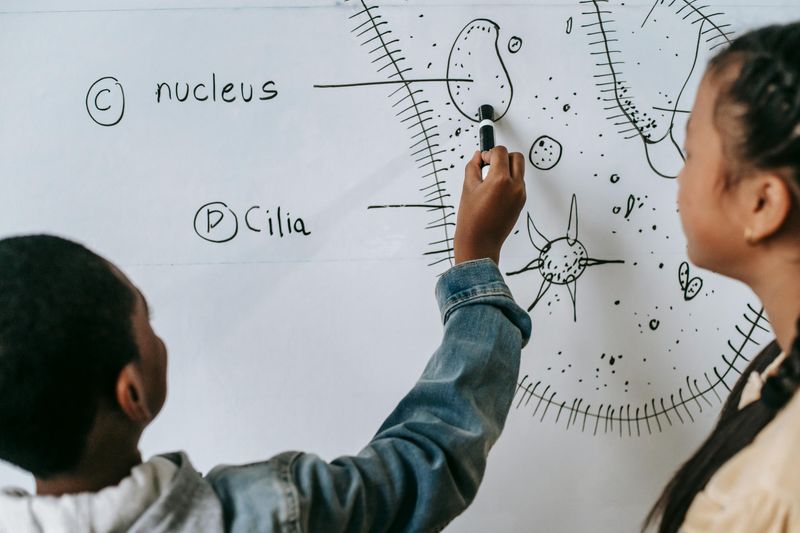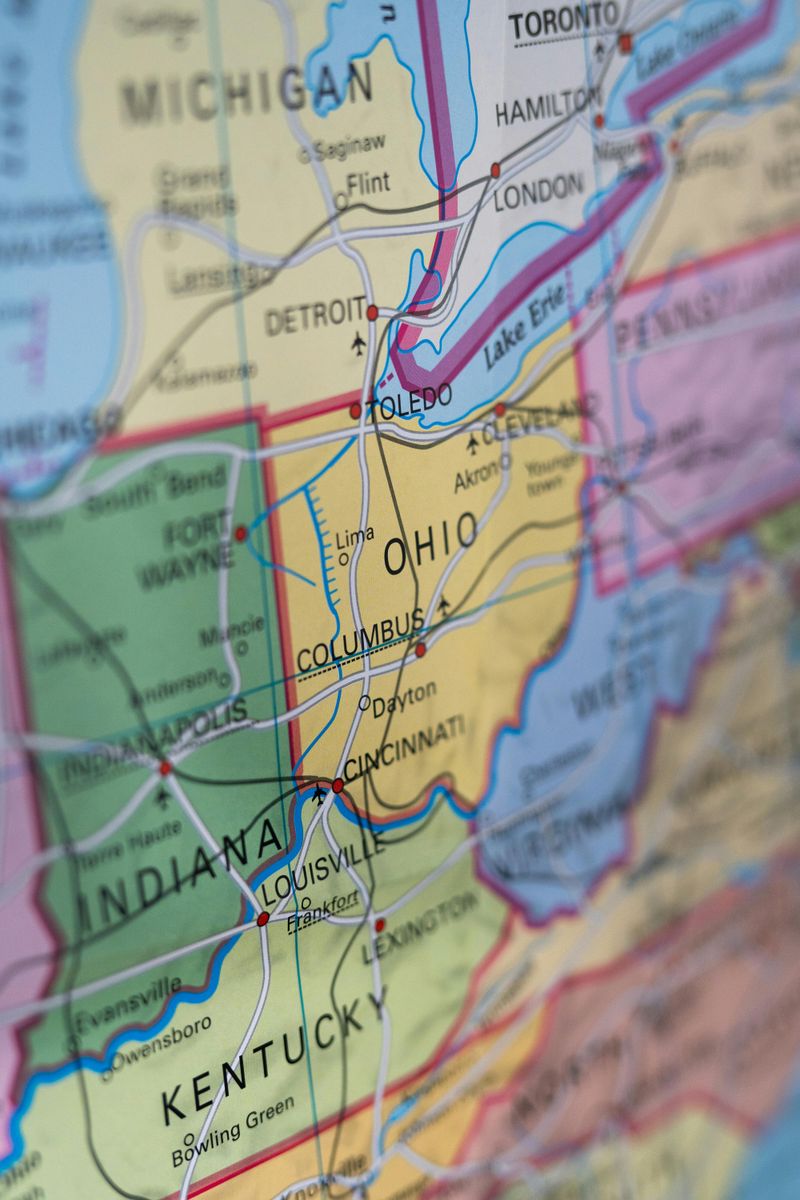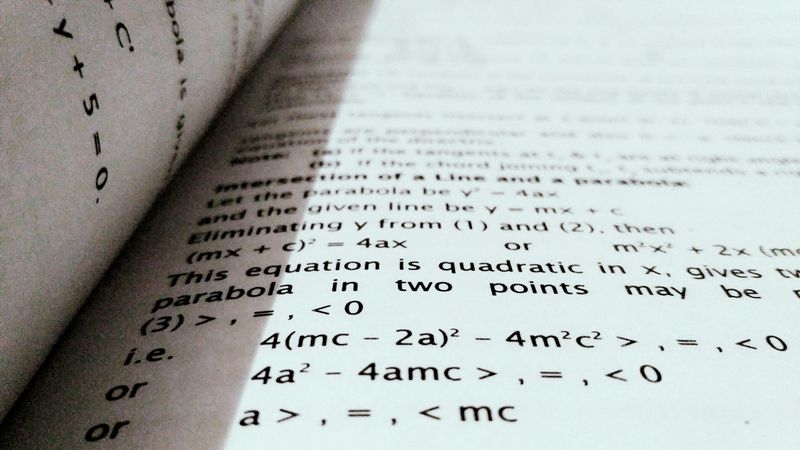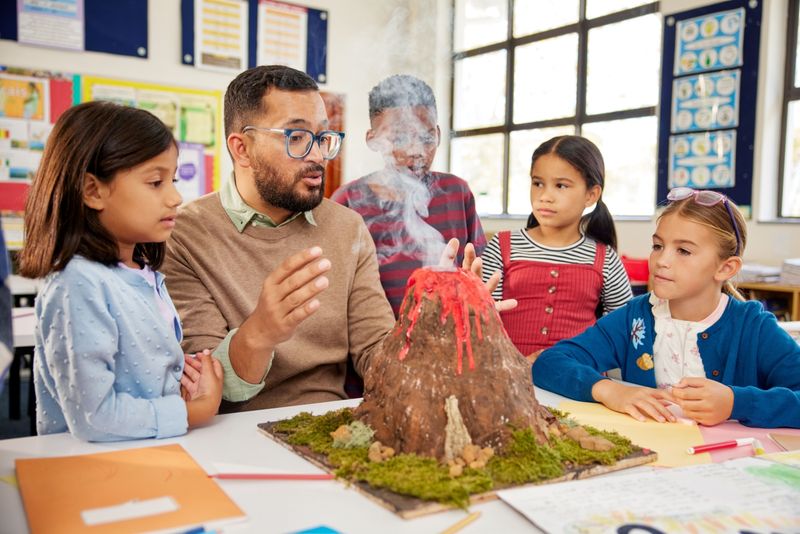18 Completely Useless Things I Was Taught In School
Remember sitting in class wondering when you’d ever use this stuff in real life? Turns out, you were right to question it. Some lessons stick with us forever, but not because they’re useful.
Here are eighteen school teachings that turned out to be total duds in the real world.
1. Cursive Writing
Teachers promised we’d use cursive every single day as adults. Spoiler alert: we don’t. Most people type everything now, from grocery lists to important emails.
Sure, signatures still exist, but nobody cares if yours looks fancy or like a squiggly line. Honestly, cursive feels more like ancient hieroglyphics than practical communication these days!
2. Mitochondria Is The Powerhouse Of The Cell
This phrase haunts every former student like a catchy song you can’t forget. Biology class drilled it into our brains relentlessly.
Though technically true, knowing this fact hasn’t helped anyone pay bills or fix a leaky faucet. Unless you became a biologist, mitochondria knowledge probably collects dust in your mental attic alongside other random science trivia nobody asked for.
3. The Exact Date Columbus Discovered America
October 12, 1492 – burned into our memories forever. Teachers made us memorize this date like our lives depended on it.
However, Columbus didn’t actually discover anything since millions already lived here. Plus, when does anyone need this specific date outside a trivia night? History matters, but obsessing over one controversial explorer’s calendar seems pretty pointless now.
4. How To Use A Card Catalog
Libraries once housed massive wooden cabinets filled with tiny cards organizing every book. Students spent hours learning this complex filing system.
Then the internet happened. Now everyone just Googles what they need in seconds. Those beautiful card catalogs became museum pieces faster than you can say search engine, making all that training completely obsolete for modern life.
5. Diagramming Sentences
English teachers loved making us draw elaborate tree diagrams breaking down sentence structure. Subject here, predicate there, modifiers dangling everywhere.
While grammar matters, nobody diagrams sentences in actual life. Writers, journalists, and even English professors skip this tedious process entirely. Understanding how language works helps, but these complicated visual puzzles? Totally unnecessary for clear communication and good writing skills.
6. The Quadratic Formula
Negative b plus or minus the square root of b squared minus four ac, all over two a. If you just sang that, congratulations – you’re traumatized too!
Math teachers insisted we’d need this constantly. Surprisingly, most careers don’t require solving for x daily. Calculators and computers handle complex equations now, making memorization feel like carrying a sundial when smartphones exist.
7. The Exact Order Of Planets Using Silly Mnemonics
My Very Educated Mother Just Served Us Nine Pizzas, except poor Pluto got kicked out, ruining the mnemonic entirely!
Science class made us memorize planetary order like it was critical survival information. When does this ever come up, though? Space exploration doesn’t depend on regular folks remembering Mercury comes before Venus. Astronomers have charts for that stuff anyway.
8. Recorders In Music Class
Every kid tortured their parents with squeaky recorder renditions of Hot Cross Buns. Schools acted like this plastic instrument was essential musical training.
Newsflash: professional musicians rarely play recorders. Guitar, piano, or even ukulele would’ve been more practical choices. Instead, we got an instrument that sounds like angry geese and collects dust in closets everywhere. Thanks, education system!
9. The Dewey Decimal System
Librarians taught us this numerical classification system with religious devotion. Numbers in the 500s meant science, 800s meant literature, and so on.
Then digital catalogs arrived. Now you just type keywords and boom – instant results without memorizing arbitrary number ranges. Physical libraries still use it, but honestly, most people just ask librarians for help or search online databases instead.
10. Square Dancing In Gym Class
Gym teachers forced us to do-si-do and promenade like we’d joined a frontier hoedown. Awkward hand-holding with classmates included.
Where exactly do adults square dance outside rural barn parties? Nowhere. Teaching actual fitness skills or sports would’ve been infinitely more useful. Instead, we learned choreographed folk dancing that vanished from our lives immediately after graduation. Swing your partner? More like swing and miss!
11. Volcano Projects With Baking Soda And Vinegar
Science fairs always featured at least five volcano projects demonstrating this fizzy chemical reaction. Teachers praised these erupting masterpieces enthusiastically.
Though fun, this experiment taught us basically nothing about real volcanoes or useful chemistry. Actual volcanic eruptions involve molten rock, not kitchen ingredients. Building the papier-mache mountain was basically arts and crafts disguised as science education. Still pretty cool, just saying!
12. The Food Pyramid
Health class taught us to eat eleven servings of bread daily using that infamous pyramid diagram. Carbs formed the foundation of healthy eating, apparently.
Nutritionists later admitted this guidance was completely wrong. The pyramid got replaced with better models because, surprise, eating bread all day isn’t optimal health advice. Schools confidently taught outdated nutrition science that contradicts everything we know now about balanced diets.
13. Typing Without Looking At The Keyboard
Typing class drilled proper finger placement on home row keys with military precision. Staring at the keyboard was basically a crime.
Ironically, this might be the only somewhat useful skill on this list! However, many people type perfectly fine using their own methods. Strict adherence to formal technique matters less than speed and accuracy, regardless of how you achieve it. Personal style wins here.
14. Shakespearean English
Wherefore art thou Romeo? English teachers made us translate Shakespeare like we’d time-travel to Elizabethan England.
Understanding classic literature has value, but memorizing archaic language patterns doesn’t help modern communication. Nobody talks like this anymore, and forcing teenagers to decode four-hundred-year-old English felt more like punishment than education. Appreciating the stories matters more than speaking like Renaissance actors at a dinner party.
15. The Exact Length Of The Nile River
Geography tests demanded we know the Nile measures exactly 4,135 miles long. Teachers acted like this number was crucial information.
When does anyone need to recite river lengths from memory? If the question somehow arises, smartphones provide instant answers. Memorizing geographical statistics feels pointless when technology makes information instantly accessible. Understanding geography concepts matters more than memorizing measurements nobody actually uses.
16. PEMDAS Order Of Operations
Please Excuse My Dear Aunt Sally, this mnemonic taught us mathematical operation order. Parentheses first, exponents second, and so on.
While mathematically correct, most people never solve complex equations outside school. Calculators handle operation order automatically now. Unless you’re an engineer or mathematician, PEMDAS knowledge sits unused in your brain alongside other academic trivia. Aunt Sally can excuse herself permanently now!
17. The State Capitals Song
Teachers made us memorize every state capital through catchy songs. Baton Rouge, Louisiana; Indianapolis, Indiana – the tune never leaves your head.
Knowing capitals impresses nobody and serves zero practical purpose. If you need this information, maps exist everywhere. Geography understanding matters more than rote memorization of city names. Though admittedly, belting out the capitals song at parties makes you the unexpected trivia champion sometimes!
18. Writing In Print Instead Of Typing
Schools insisted we master perfect print handwriting for years. Neatness counted heavily on assignments and tests.
Then computers became standard everywhere. Most professional work happens digitally now, making handwriting increasingly irrelevant. Sure, occasionally writing something by hand happens, but nobody judges your print quality anymore. Time spent perfecting letter formation could’ve taught actual technology skills instead. Progress made this skill practically obsolete quickly!
























